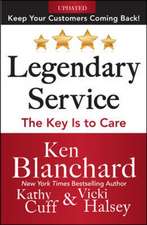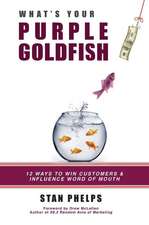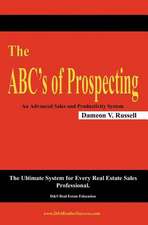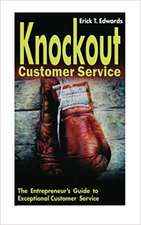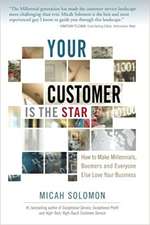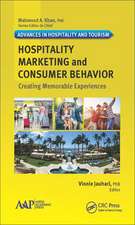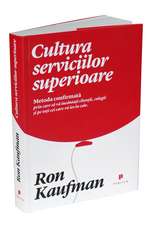Integrating Total Quality Management in a Library Setting
Autor Susan Jurow, Susan Barnarden Limba Engleză Hardback – 19 iul 1993
Total Quality Management in a Library Setting describes the principles of TQM, its origins, and the potential benefits and barriers to be expected when adopting quality management approaches in libraries. Chapters provide guidelines for planning and implementation to help libraries use total quality management to break down interdepartmental barriers and work on continuously improving library services. The contributors, who have begun to think about using or who are already using TQM in a library setting, present specific planning and implementation issues that can be put to immediate use in libraries.
With this innovative book, library managers will learn that by working together on problem solving teams to address specific operational questions, and by developing a shared knowledge of problem-solving tools and techniques, staff members grow personally and gain a larger sense of organizational purpose. Other TQM methods introduced in this book include the concept of the internal customer, which teaches staff to recognize how other staff members use the results of their work, and the principle of continuous improvement, which enables libraries to set measurable goals based on quantitative performance indicators, and to monitor progress toward those goals.
| Toate formatele și edițiile | Preț | Express |
|---|---|---|
| Paperback (1) | 398.06 lei 6-8 săpt. | |
| Taylor & Francis – 19 aug 1993 | 398.06 lei 6-8 săpt. | |
| Hardback (1) | 766.12 lei 6-8 săpt. | |
| Taylor & Francis – 19 iul 1993 | 766.12 lei 6-8 săpt. |
Preț: 766.12 lei
Preț vechi: 1155.71 lei
-34% Nou
Puncte Express: 1149
Preț estimativ în valută:
146.59€ • 153.49$ • 121.59£
146.59€ • 153.49$ • 121.59£
Carte tipărită la comandă
Livrare economică 09-23 aprilie
Preluare comenzi: 021 569.72.76
Specificații
ISBN-13: 9781560244639
ISBN-10: 1560244631
Pagini: 210
Dimensiuni: 152 x 229 x 20 mm
Greutate: 0.56 kg
Ediția:1
Editura: Taylor & Francis
Colecția Routledge
Locul publicării:Oxford, United Kingdom
ISBN-10: 1560244631
Pagini: 210
Dimensiuni: 152 x 229 x 20 mm
Greutate: 0.56 kg
Ediția:1
Editura: Taylor & Francis
Colecția Routledge
Locul publicării:Oxford, United Kingdom
Cuprins
ContentsIntroduction: TQM Fundamentals and Overview of Contents
- Part I: Library Approaches to Total Quality Management
- TQM: The Director’s Perspective
- Organizational Development and TQM: The Harvard College Library’s Experience
- Total Quality Management: The Oregon State University Library’s Experience
- Implementing Total Quality Management: A Model for Research Libraries
- Part II: Implementing a Total Quality Management Program
- Customer Service: Another Side of TQM
- TQM: Training: The Library Service Challenge
- Problem Solving Teams in a Total Quality Management Environment
- Tools for Measuring and Improving Performance
- Part III: Supporting Total Quality Management Efforts
- Quality Reward and Awards: Quality Has Its Own Reward, But an Award Helps Speed the Process
- Creating Partnerships: Forging a Chain of Service Quality
- Part IV: Learning From the Experience of Others
- Total Quality Management Initiatives in Higher Education
- Total Quality Management: The Federal Government Experience
- Total Quality Management in the Defense Fuel Supply Center: Issues and Observations
- Index
- Reference Notes Included
Descriere
Improve the delivery of library services by implementing total quality management (TQM), a system of continuous improvement employing participative management and centered on the needs of customers. Although TQM was originally designed for and successfully applied in business and manufacturing settings, this groundbreaking volume introduces strategies for translating TQM principles from the profit-based manufacturing sector to the library setting. Integrating Total Quality Management in a Library Setting shows librarians how to improve library services by implementing strategies such as employee involvement and training, problem-solving teams, statistical methods, long-term goals and thinking, and an overall recognition that the system (not the staff) is responsible for most inefficiencies.

